6:45am: Alarm goes off. Contemplate turning it off and going back to sleep – it is a Saturday after all. Somehow remove myself from bed and into shower.
7:15am: Showered and eating breakfast. Dad decides to start an in-depth conversation about learning maths and nearly makes me late! I don’t get to see my parents too often so it was nice to pop down for the evening before – as they live in Wolverhampton it seemed like a no-brainer to start my journey from there rather than Leeds.
8:10am: Mum has made me tea in my flask <3 Get in the car and set off for Birmingham!
8:40am: Arrive at car park. Have no idea where to go until I spot three ladies with cake boxes. Rationalise that no-one else in their right mind would be walking around Birmingham at this ungodly hour on a Saturday morning with cake boxes, so follow them. Meet a lovely lady called Becky who is also lost, and a randomer from another conference who decides to tag along.
8:45am: Realise that ladies with cake boxes are going the wrong way. Consequently have walked all the way around the outside of Millenium Square car park before we are sensible enough to consult Google Maps.
9:00am: Finally on Aston University campus! Direct randomer in the direction of her conference, then head to our venue. Very exciting atmosphere as we enter the building but don’t have time to get a coffee as everyone is headed to the main lecture hall to kick off the day.
9:15am: Find seats with Becky and meet two of her friends. Lots of chat about all things maths-y and we’re all pretty excited by the Pi Day countdown clock! Get stressed as Internet is not working; finally get something and check out all the tweets so far.
9:25am: Lots of people getting ready with phones and cameras to take a picture of the iconic date/time!
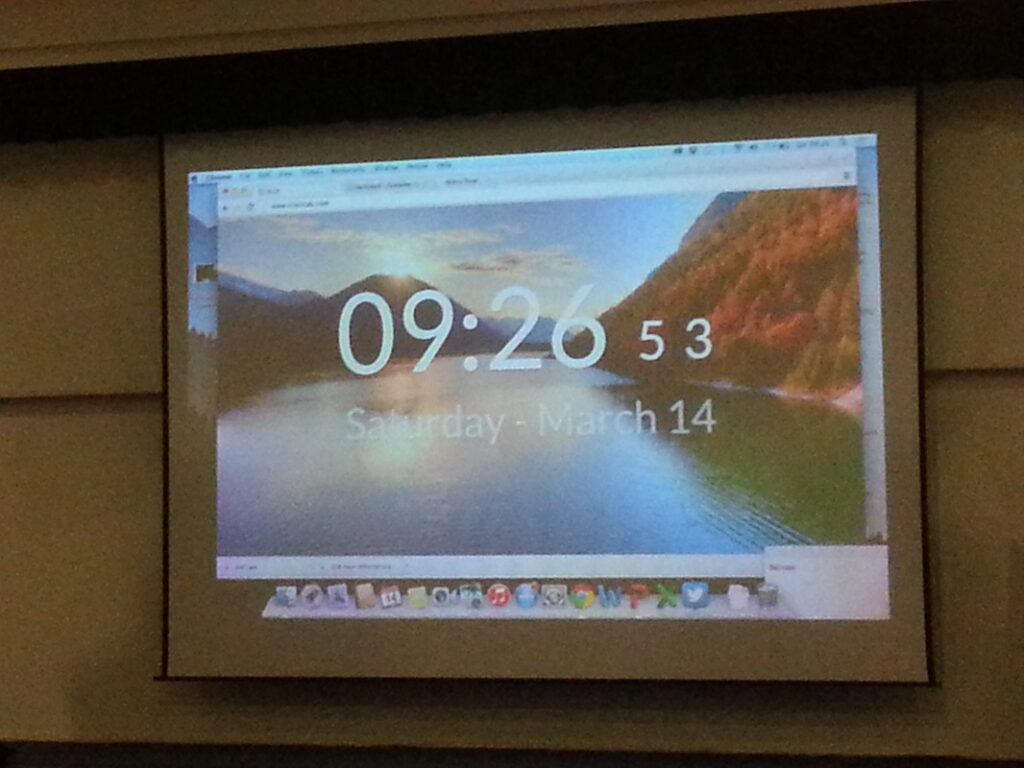
9:26:53am: Conference starts bang on schedule with a countdown and round of applause. Kudos to Mark McCourt for impeccable timing!
9:30am: Andrew Taylor from AQA gives a nice brief history of problem solving in mathematics. Interesting points raised about how to assess problem solving; coursework vs. problem solving exams. Andrew mentions “90 Mathematics Problem Solving Questions” produced in collaboration with the University of Leeds, and I make a mental note to pick up a copy from the AQA stand later.
9:40am: Address from Dr Vanessa Pittard (DfE). Heard this before at Celebration of Maths about a month ago so zone out a bit and follow the alternative commentary on Twitter.
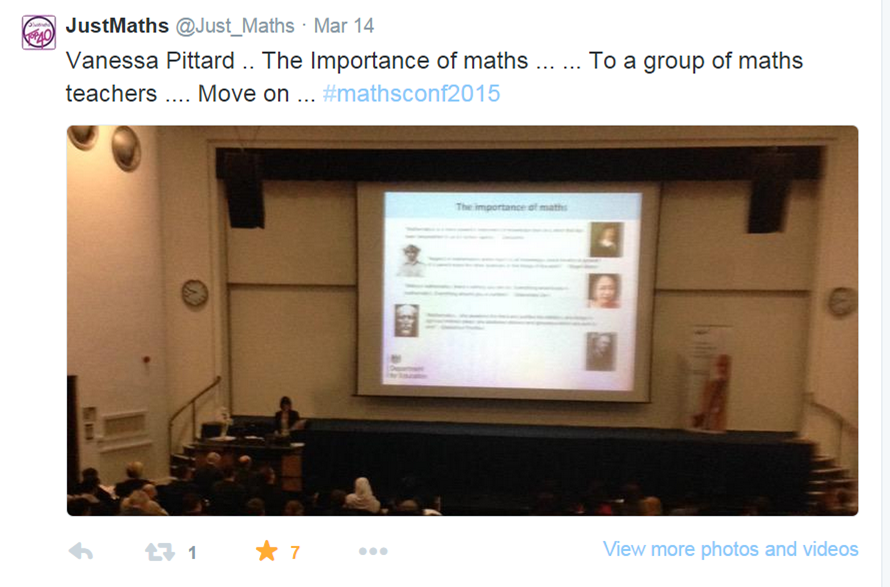
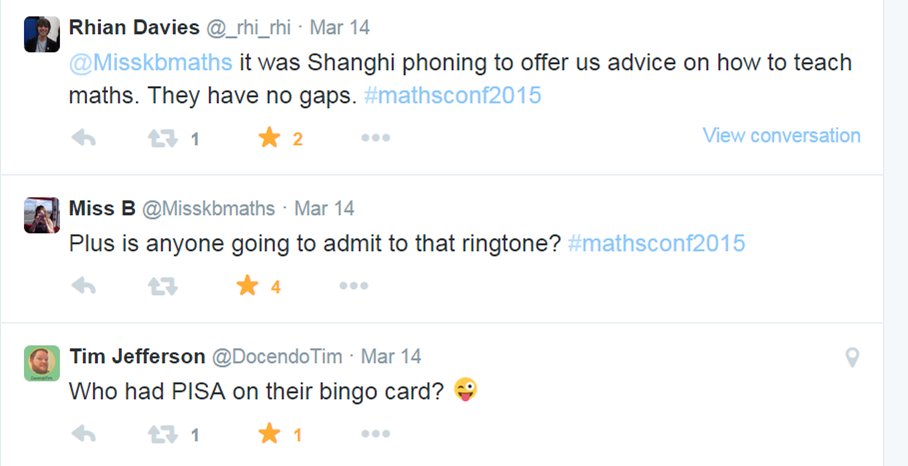
As at CoM, I understand why it’s necessary to have an address from the DfE, but it was still a little soul-crushing to be told how rubbish we are again first thing on a Saturday morning.
10:20am: Update from Mark McCourt on LaSalle Education’s work with Complete Maths. “Shanghai is not actually a country” gets cheers and applause; Mark points out that our top 50 schools outperform those of both Shanghai and Singapore, but that there’s an issue with coordinating a professional development network of 35 000 maths teachers . @kit2kat summarises it beautifully with this Twitter post:
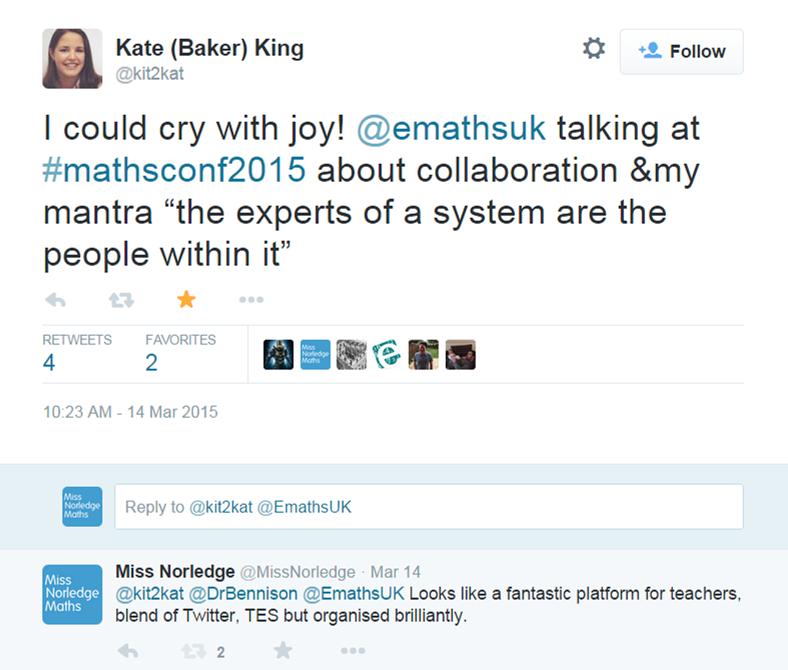
Mark demonstrates Complete Mathematics and I make a note to myself to investigate it further.
10:45am: Really enjoy my resource speed dating session! A great way to collaborate with colleagues. Pick up a nice way to incorporate lower and higher order thinking into lessons using Bloom’s Taxonomy (although might update it to SOLO taxonomy if I use it in the classroom) and a superb idea for making interactive test papers using Excel. Have brought my algebra tiles with me so share that with a few people.
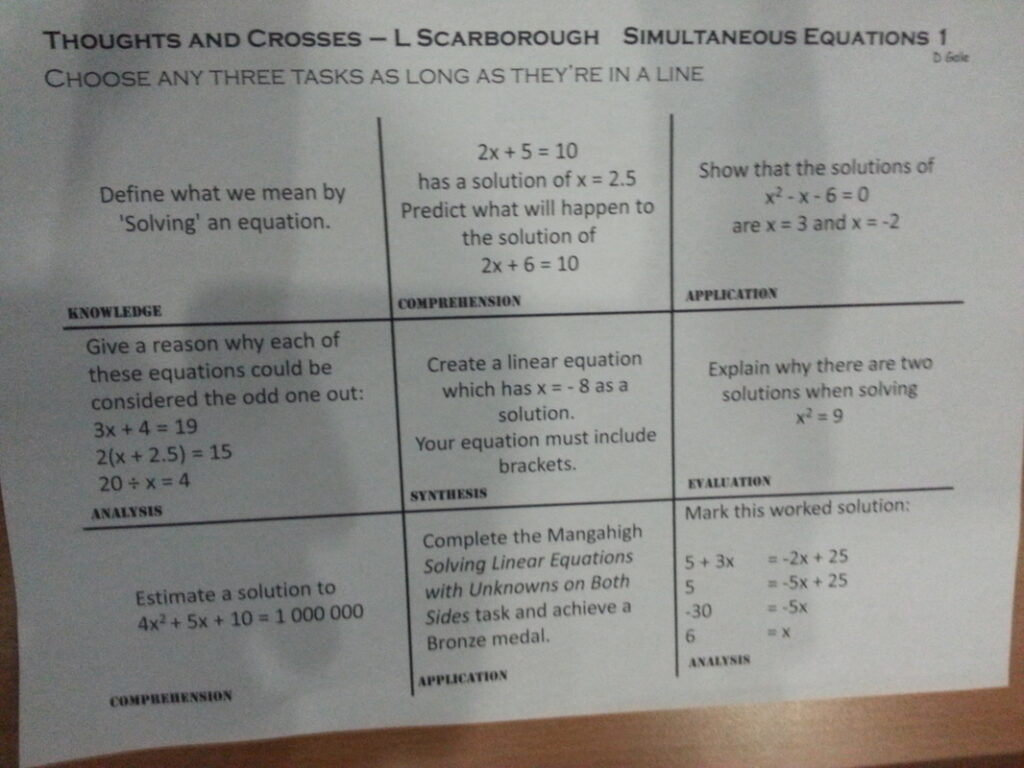
11:00am: Break! Dash to the loo, grab a coffee and mingle. Barely have time to poke my nose into the exhibition centre, let alone start my treasure hunt, before it’s time for Workshop 1 with Andrew Thomas (AQA).
11:20am: Session starts with writing our questions for Andrew on Post-Its, who promises to answer as much as he can. We have lots to ask!
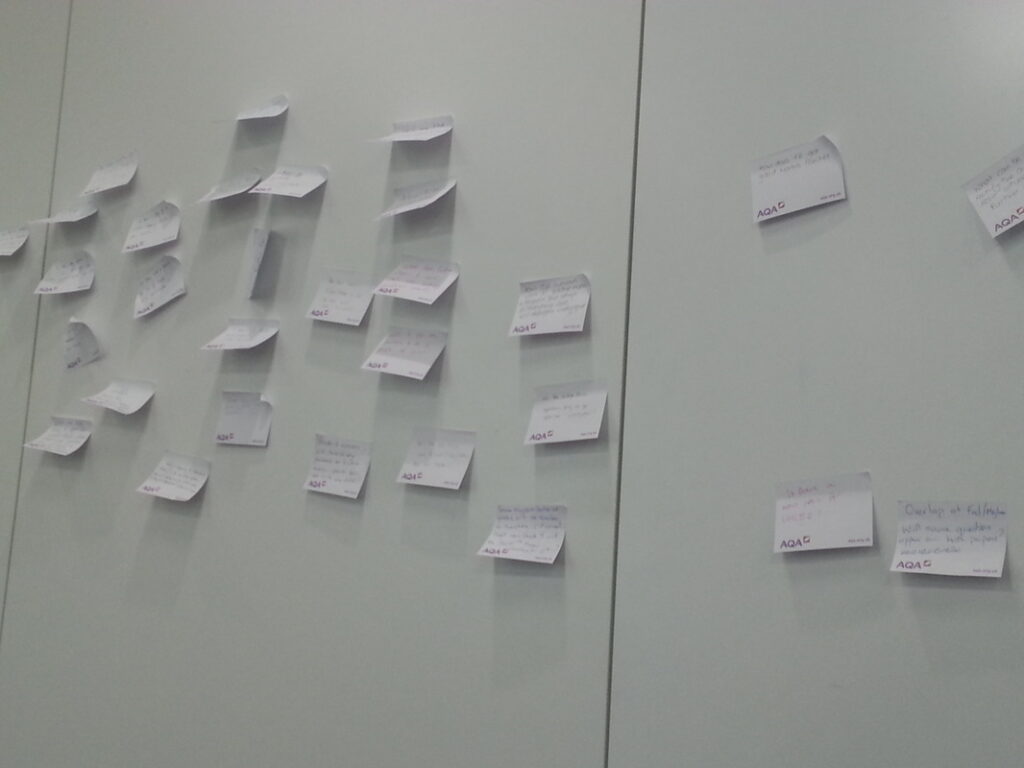
11:30am: First up: what’s going on with SAMs and accreditation? No major news yet; Andrew explains the research project and predicts results early May (!!!) so for my money, still no point making choices on exam boards yet. Interested to find out that research involves using PhD maths students as well as the 4000 Year 11 students I already knew about.
11:40am: What happens with grades and numbers? Nice diagram to explain the mess, and AQA tweet me another helpful one.
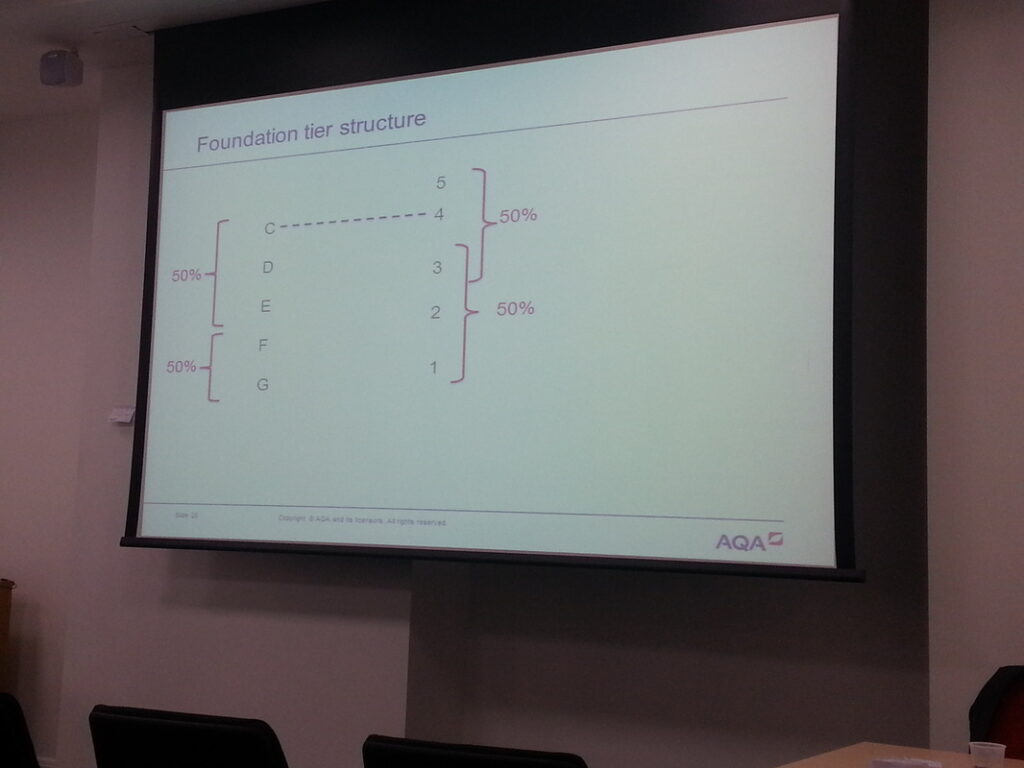
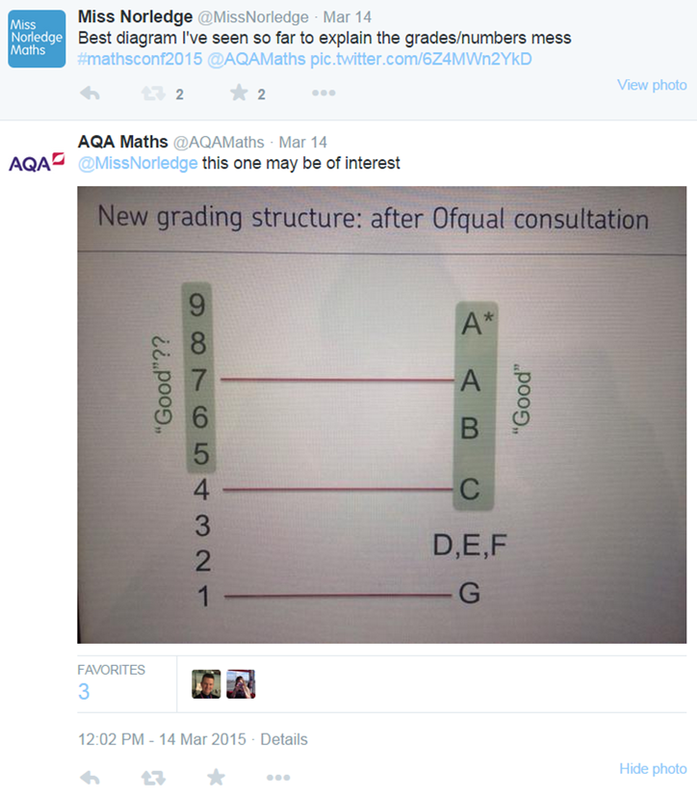
Seeing it as a list rather than a bar scale helps me visualise the whole 1/3 2/3 thing around current grades C and B. Still no solution to what employers will do to compare; arguably not the problem of the exam boards! I predict a couple of years of chaos.
12:05pm: What’s happening with A Level? Andrew does an admirable job of finding all the bits that we kind of know, but basically it’s all still up in the air.
12:15pm: When will all this change again? Laughs from the audience! Summarises how most of us feel at the moment. I don’t really want to start ranting, but the constant changes are a little difficult to keep up with. Although there wasn’t really anything I didn’t already mostly know about in this workshop, it was nice to hear views from other teachers and work out that everyone, (seemingly including the exam boards), is a bit peeved at the way this has been done.
12:20pm: Lunch! Wolf down a delicious salmon and dill sandwich before dashing round the exhibition. Have genius idea of photographing all the treasure hunt problems and working on them later (didn’t actually find time!). Pick up freebies, including a stack of useful stuff from AQA – and yes, I remember to get the 90 problems resource!
1:15pm: Hard sell from enthusiastic man at the Kumon stand makes me late for the Tweet-up! Rush along to find the room – easy to find by following the noise!
1:25pm: Lovely bit of networking and meeting colleagues. Have a little chat to @MissBsResources, who takes this great photo! Pleased with my “mathematical thinking face” here…
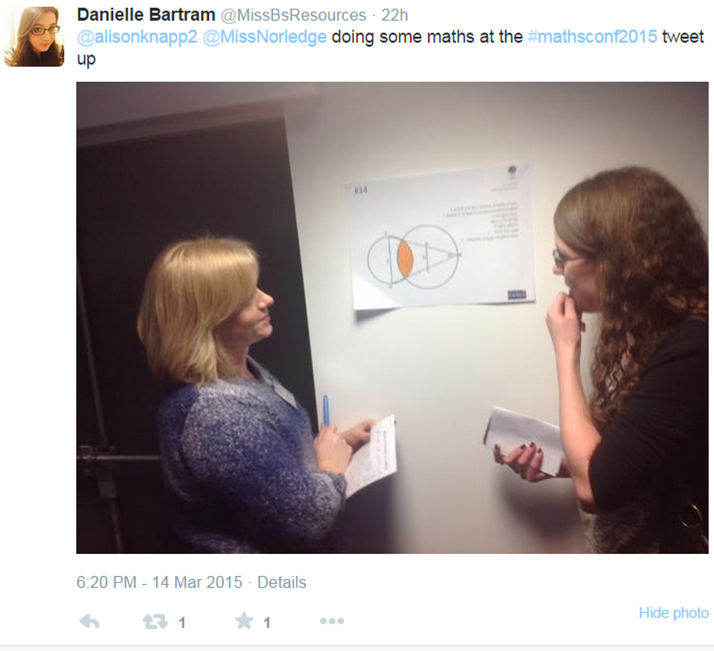
1:43pm: Ooops, late for Johnny Ball’s Life of Pi session! Do that awkward thing of walking into a full lecture theatre late with everyone looking at you and feel like I’m back at uni. Embarrassed!
1:44pm: Johnny Ball’s session in full swing and I remember how much I love watching people who really care about maths giving lectures. Key points to investigate further:
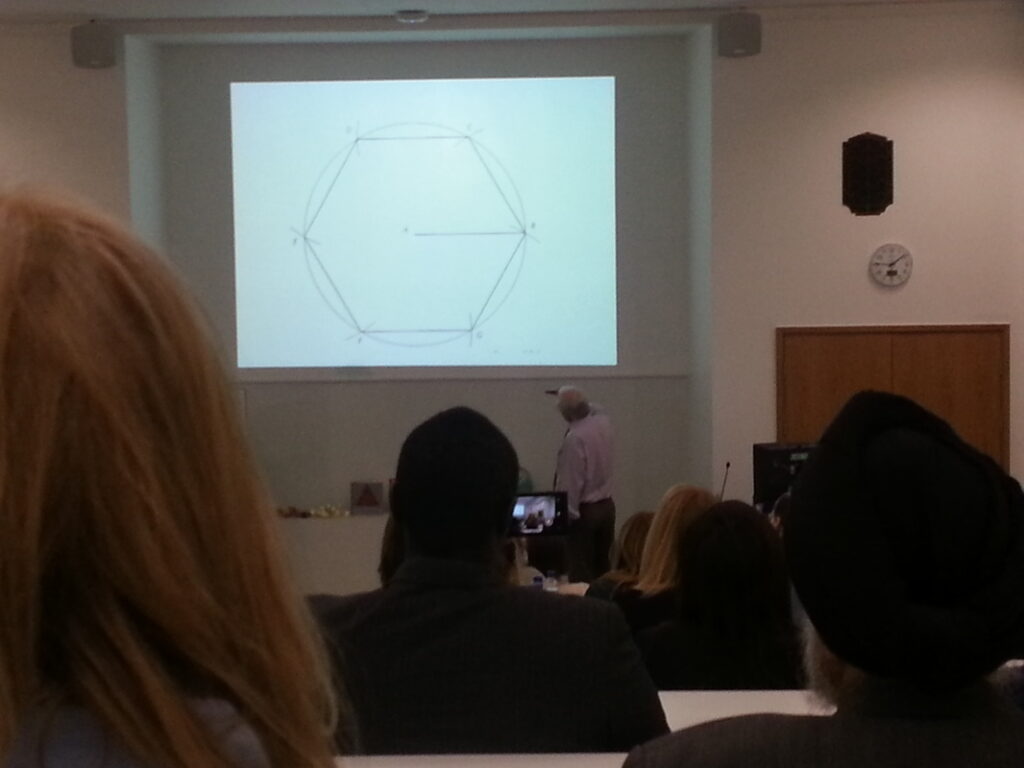
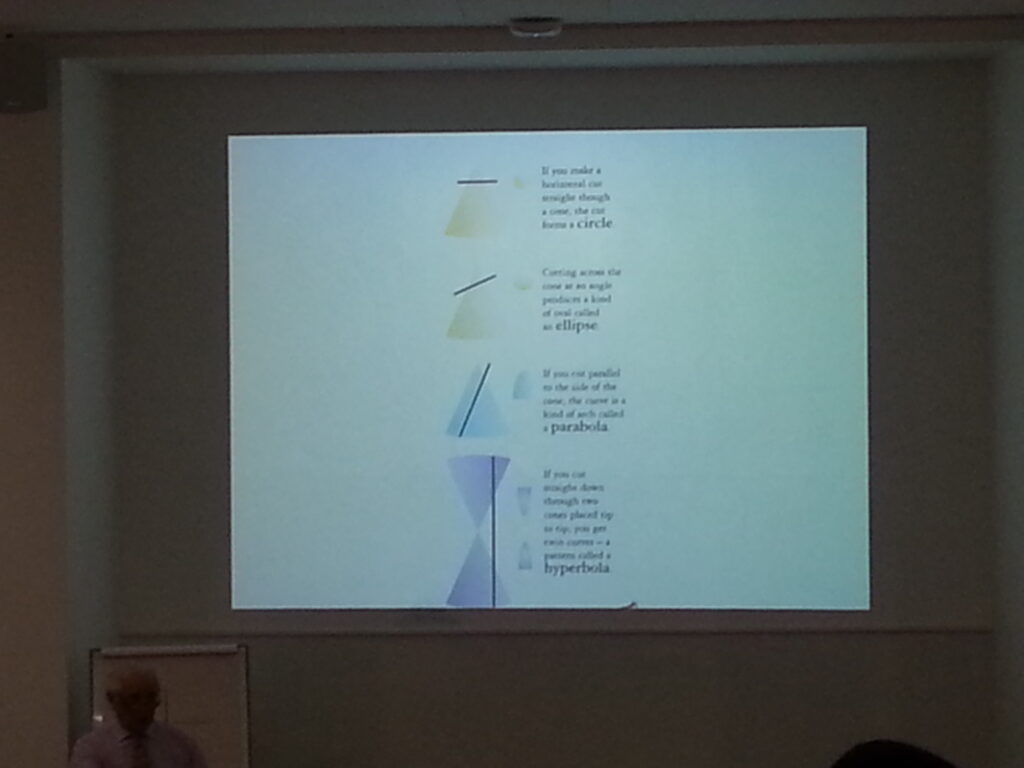
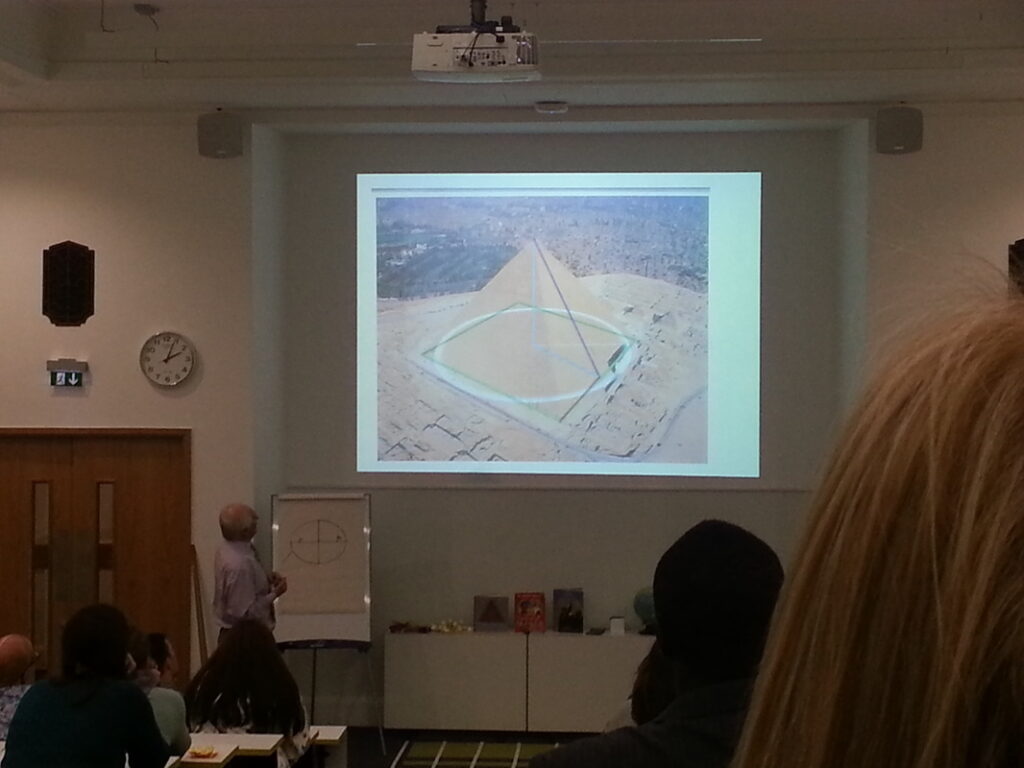
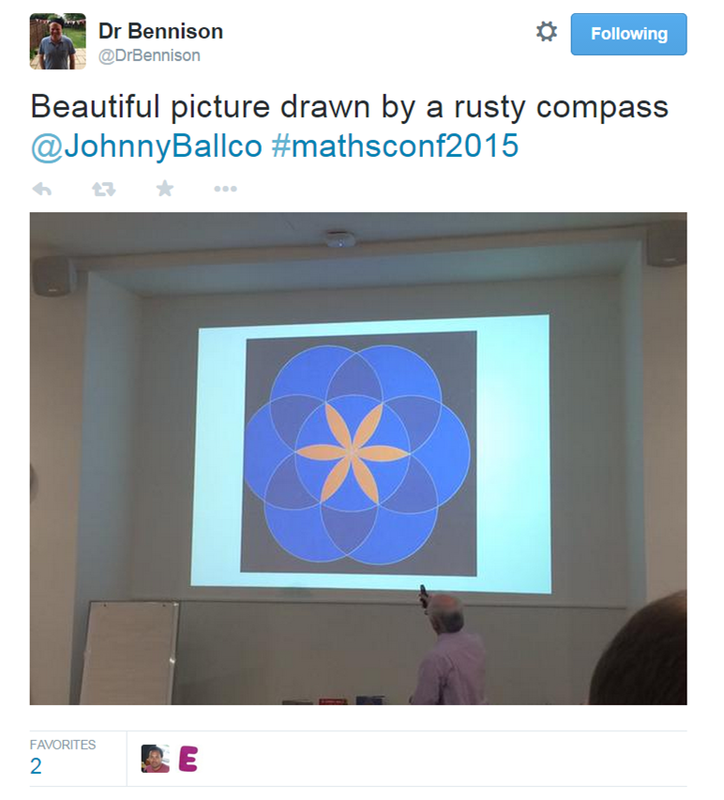
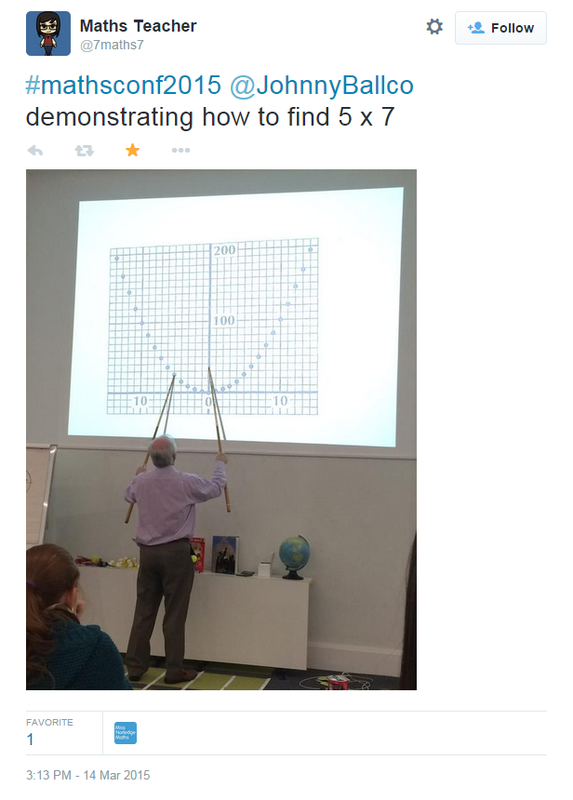
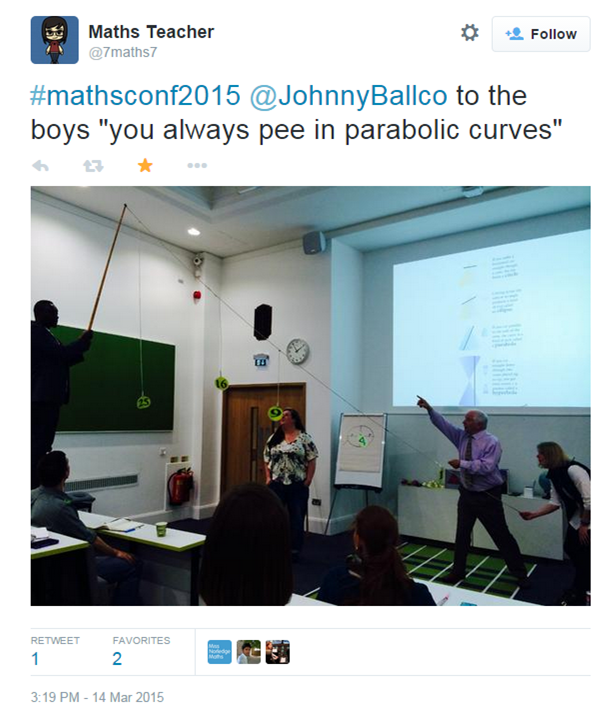
And my biggest takeaway from this session and the entire day – this:
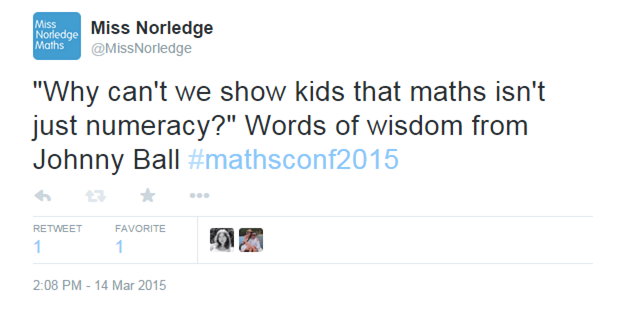
2:40pm: Grab another cup of coffee and network a bit more. Contemplate doing my treasure hunt questions but decide that brain is not working well enough.
3:00pm: Workshop 3: The Great Mastery Debate quickly turns into “the Great Mastery Consensus”! Mark outlines the premise, then Alan, Amir and Bruno set out their stalls. I make a few notes (which I will probably turn into a proper blog post at some point).
3:05pm: Alan’s viewpoint
- Different definitions of mastery learning.
- We can teach “outstanding” lessons but pupils don’t retain learning.
- There’s an infinite number of correct curricula – teach the kids what they don’t know!
- Mastery isn’t a panacea – needs the right school culture.
- Cumulative curriculum and good assessment important.
3:10pm: Amir’s viewpoint
- Change pupils’ mindset of being against maths.
- Richard Feynmann talks about maths as a toolkit to solve problems.
- Mastery is the toolkit; get the skills right, then combine using contexts to solve problems.
- Reduce culture of fear; pupils need to appreciate that they may need to try different approaches.
- Spiral curriculum embeds disconnects between topics.
- Good curriculum design faciliates better teaching but won’t make up for poor teaching.
(EDIT: Amir has now written a full blog about the Mastery debate – check it out!)
3:15pm: Bruno’s viewpoint
- Pupils need to really understand what’s being taught.
- Discovery approach may be less effective.
- Learning lots creates a bottleneck – limited amount to what is stored in long term memory.
- Look for ways to compress learning (understanding) to store more comfortably.
- Teach fewer topics for longer.
- Separate concepts on first teaching (area/perimeter, mean/median, circumference/area).
- Think carefully about examples (minimally different examples and non-examples).
- Scrutinise misconceptions.
3:30pm: Lots of further discussion; I jot down the following to think about later:
- Does making learning relevant (real life) mean it sticks longer?
- Children can’t reason with what they’ve just learned – takes time to sink in. How does this fit?
- Does mastery have to mean that all pupils follow the same scheme at the same pace? What are the implications for the very highest and very lowest attainers?
- How can we marry up mastery assessment with whole-school assessment and reporting procedures?
- How can non-specialist primary colleagues be supported?
4:00pm: Have to disappear before closing address due to travel constraints. Thank La Salle staff while running out the door and find out that there’s more happening in Manchester in April. Make mental diary note.
7:00pm: Arrive back in Leeds, tired but head buzzing with day’s events. Non-plussed fiance wonders why I’m spending the evening on Twitter reading the hashtag.
10:00pm: Bed! Phew!
